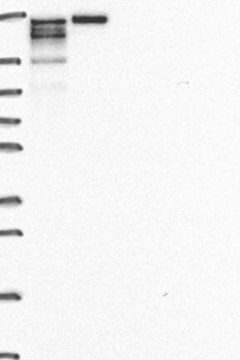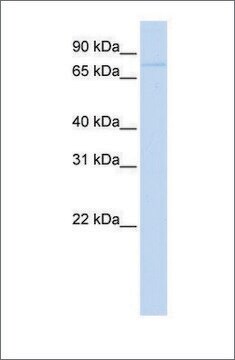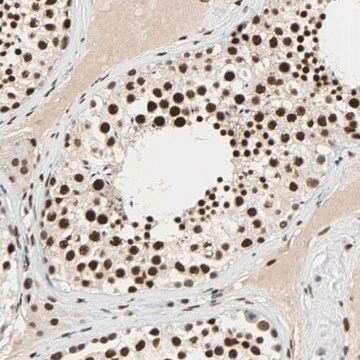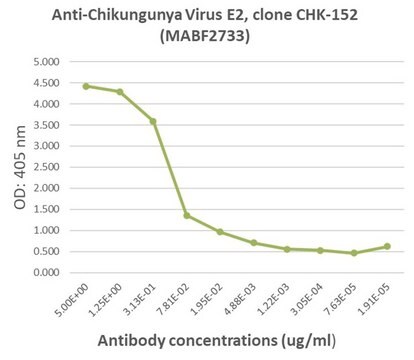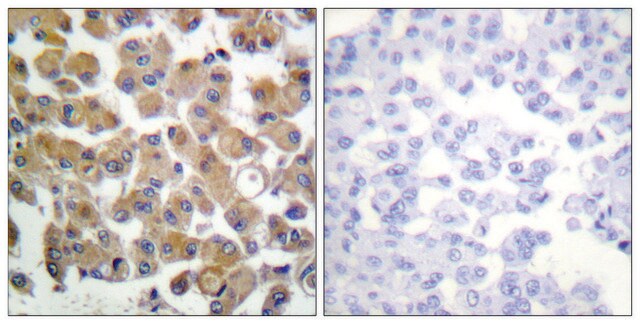SAB4200124
Anti-Nexilin antibody,Mouse monoclonal
clone NX-38, purified from hybridoma cell culture
Synonyme(s) :
Anti-NEXN, Anti-Nelin
About This Item
Produits recommandés
Source biologique
mouse
Conjugué
unconjugated
Forme d'anticorps
purified from hybridoma cell culture
Type de produit anticorps
primary antibodies
Clone
NX-38, monoclonal
Forme
buffered aqueous solution
Poids mol.
antigen 80 kDa
Espèces réactives
mouse, human, rat
Conditionnement
antibody small pack of 25 μL
Concentration
~1 mg/mL
Technique(s)
immunocytochemistry: suitable
western blot: 1-2 μg/mL using using rat brain S1 fraction extracts
Isotype
IgG2a
Numéro d'accès UniProt
Conditions d'expédition
dry ice
Température de stockage
−20°C
Modification post-traductionnelle de la cible
unmodified
Informations sur le gène
human ... NEXN(91624)
mouse ... Nexn(68810)
rat ... Nexn(246172)
Catégories apparentées
Description générale
Spécificité
Application
Actions biochimiques/physiologiques
Forme physique
Stockage et stabilité
Clause de non-responsabilité
Vous ne trouvez pas le bon produit ?
Essayez notre Outil de sélection de produits.
Code de la classe de stockage
10 - Combustible liquids
Point d'éclair (°F)
Not applicable
Point d'éclair (°C)
Not applicable
Certificats d'analyse (COA)
Recherchez un Certificats d'analyse (COA) en saisissant le numéro de lot du produit. Les numéros de lot figurent sur l'étiquette du produit après les mots "Lot" ou "Batch".
Déjà en possession de ce produit ?
Retrouvez la documentation relative aux produits que vous avez récemment achetés dans la Bibliothèque de documents.
Notre équipe de scientifiques dispose d'une expérience dans tous les secteurs de la recherche, notamment en sciences de la vie, science des matériaux, synthèse chimique, chromatographie, analyse et dans de nombreux autres domaines..
Contacter notre Service technique


